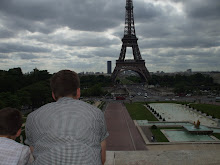Carole Cadwalladr writes in today's Observer about the risk of humiliated Britain's Got Talent contestants contemplating suicide. The article uses the example of Alyn James, a contestant with a history of psychiatric units and mental health problems, who was, by the sounds of it (I didn't watch the "episode" in question), recently jeered off the stage by a crowd baying for blood. I don't watch the show at all, though I'll admit that I have done in the past. Soon enough, I came to the realisation that if I wanted to see a hairy misanthrope tear people to shreds, I might just as easily watch Peter Jackson's King Kong.
This story is, predictably, the most recent in a long line of criticisms of Simon Cowell's talent contest-cum-reality TV shows. Little more than thinly-veiled exhibitions of Britain's weird and wonderful (though far more air time is devoted to the weird), BGT is both a symptom and a cause of a mainstream culture that deals in schadenfreude and the considerable clout of rose-tinted underdog stories. When Susan Boyle appeared on the show last year (and I'm again working from second-hand information; I've managed never to watch that YouTube clip), she was ridiculed by audience members:
"What are you doing here, fool? Don't you know that people who aren't preposterously attractive can't si- WOW! Incredible! My socially conditioned prejudices never conceived that this unconventionally dressed, middle-of-the-road woman might be at all talented!"
(I'm guessing the reaction went something like that)
Yet anyone who thought that BGT might finally have offered a fair and unbiased opportunity to a diamond in the rough was sorely mistaken. As highlighted by TIME, Boyle was expressly approached by Cowell's talent scouts to appear on the show, while 1970s Cambodian dictator and previous BGT winner Paul Potts had performed before Pavarotti, and with the Royal Philharmonic. Far from being incredible discoveries, their performances were carefully orchestrated pieces of human-interest drama. But then, as many people must know by now, the televised auditions are in fact the second stage of contestants' tribulations: for they must attend an 'untelevised' audition with BGT underlings before they entertain the panel of international supervillains Cowell, Piers Morgan, and Amanda "I know you were singing for your babies/parent/grandparent just then" Holden. This filtration process obviously ensures that the contestants most likely to elicit an extreme response from the audience are put through, as opposed to those with the very best acts. Because that's what TV is all about, right? An exposé of regular people whom we are encouraged to deride because they don't meet our absurd expectations? Right.
And, of course, in last year's grand final, Boyle apparently fell out of grace with "the public", who voted instead for some kids who shuffled about whilst wearing hats (the fact that their act was named 'Diversity' made their victory seem like the fulfilment of an Equal Opportunities quota). I arrived back in London from a holiday in France to the hilarious-yet-awful tabloid headlines of "SuBo in Priory". I'm certain that any irony in one woman's struggle with ceaseless and unscrupulous media coverage receiving ceaseless and unscrupulous media coverage was not lost on the bigwig red-top editors; they who eat irony for breakfast and wash it down with a warm cup of capitalist depravity. Yum.
Cowell's shows have propagated the belief that members of society have not only the right but the obligation to ridicule others on the basis of a very artificial, very public portrayal. His projects throughout the previous decade mutated from glitzy-tacky singing contests to national spectacles showcasing various 'talents', all the while revolutionising the manner in which the viewing public interacted with what they saw on television. Somewhere along the way, laughing at failure become more enjoyable (and doubtless more profitable) than celebrating success. His is a multi-million pound trade that deals in personal strife and public exploitation, offering transient fame and the impossible promise of contestants' unadulterated self-expression.
Rumour has it that he's on the Queen's birthday honours list.
Subscribe to:
Post Comments (Atom)

You're a fantastic writer, James, above and beyond the level of eloquence and intelligence found in a lot of newspapers (and that's including the good ones).
ReplyDelete